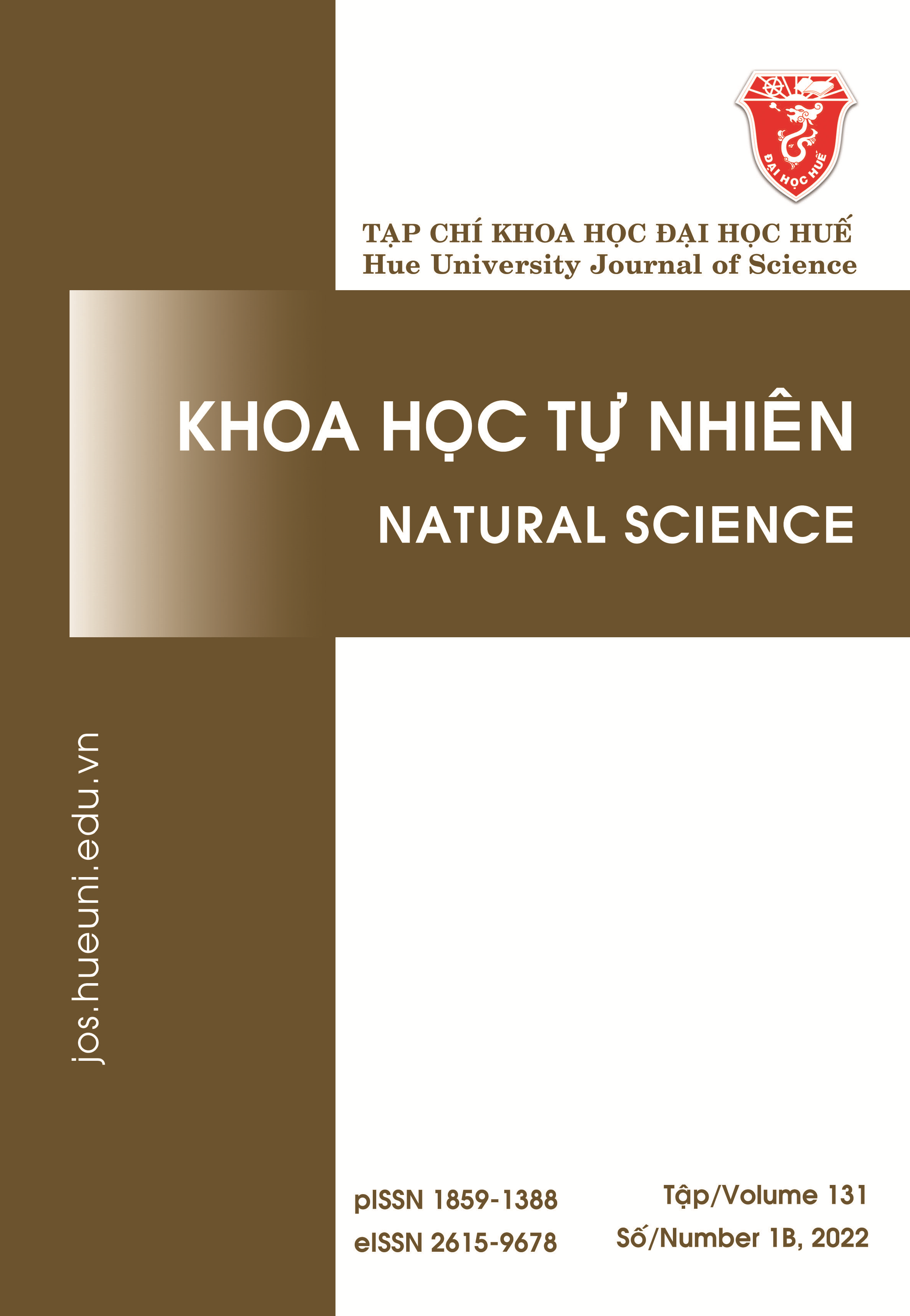Abstract
Dangshen Codonopsis javanica exhibits invaluable medicinal properties in herbal remedies; however, there has currently not been much specific analysis of the phytochemicals and bioactivities of this plant. The root ethanol extract of C. javanica contains substances such as saponins, phenolic acids, terpenoids, and alkaloids. It displays an antibacterial effect against Escherichia coli, Pseudomonas aeruginosa, Staphylococcus aureus, and Bacillus cereus with the IC50 values of 150, 100, 150, and 90 μg/mL, respectively. The antioxidant capacity of the root extract was also observed with an IC50 value of 46.8 ± 6.8 μg/mL. Furthermore, the extract exhibits activity on human cancer cell lines HepG2 (IC50 = 83.6 ± 2.7 μg/mL) and MCF-7 (IC50 = 95.3 ± 2.3 μg/mL). Hence, this study provides the basic data for further research on the bioactivities of natural compounds of Dangshen C. javanica for the first time.
References
- Chung HM, Sinh PX, Tuyen NM. Initial study on chemical compounds of Vietnam Dang Sam Codonopsis javanica (Blume) Hook. Hanoi: National Institute of Medicinal Materials (NIMM); 2002.
- Loi DT. The medicinal plants and herbs of Vietnam. 14th ed. Hanoi: Medical Publishing House; 2006.
- VC Vo. Dictionary of Vietnamese Medicinal Plants. Hanoi: Medical Publishing House; 2012. p. 566-567.
- Tap N. The Red List of Medicinal Plants in Vietnam. Journal of Medicinal Materials. 2006;11(3):97-105.
- Ban NT. Vietnam Red Data Book (Part II - Plants). Hanoi: Publishing House of Natural Science and Technology; 2007.
- Likhitwitayawuid K, Angerhofer CK, Cordell GA, Pezzuto JM, Ruangrungsi N. Cytotoxic and Antimalarial Bisbenzylisoquinolme Alkaloids from Stephania erecta. Journal of Natural Products. 1993;56(1):30-8.
- Skehan P, Storeng R, Scudiero D, Monks A, McMahon J, Vistica D, et al. New Colorimetric Cytotoxicity Assay for Anticancer-Drug Screening. JNCI: Journal of the National Cancer Institute. 1990;82(13):1107-12.
- Ciulei I. Methodology for Analysis of Vegetable Drugs. Bucarest: Faculty of Pharmacy; 1982.
- Saklani S, Sati B, Sati H, Mishra A. Pharmacognostic, phytochemical and antimicrobial screening of Aphanamixis polystachya, an endangered medicinal tree. Int J Pharm Pharm Sci. 2012;4(3):235-240.
- Department of Pharmacology, Faculty of Pharmacy, University of Medicine and Pharmacy, Ho Chi Minh City. Medical research methodology. Ho Chi Minh: Publishing House of Ho Chi Minh City University of Medicine and Pharmacy; 2015.
- Srinivasan D, Nathan S, Suresh T, Lakshmana Perumalsamy P. Antimicrobial activity of certain Indian medicinal plants used in folkloric medicine. Journal of Ethnopharmacology. 2001;74(3):217-20.
- Formagio ASN, Volobuff CRF, Santiago M, Cardoso CAL, Vieira MDC, Valdevina Pereira Z. Evaluation of Antioxidant Activity, Total Flavonoids, Tannins and Phenolic Compounds in Psychotria Leaf Extracts. 2014;3(4):745-57.
- Yen GC, Duh PD. Scavenging Effect of Methanolic Extracts of Peanut Hulls on Free-Radical and Active-Oxygen Species. Journal of Agricultural and Food Chemistry. 1994;42(3):629-32.
- Wang Z-T, Ma G-Y, Tu P-F, Xu G-J, Ng T-B. Chemotaxonomic study of Codonopsis (family Campanulaceae) and its related genera. Biochemical Systematics and Ecology. 1995;23(7): 809-12.
- Duy TH, Quoc LPT, Cam TTH, Ngoc PTK, Dao DTA. Optimization of extraction and collection of saponins from Codonopsis javanica (Blume) Hook. f. by alpha-amylase enzyme. Journal of Science and Technology. 2015;4(99)1-3.
- Othman L, Sleiman A, Abdel-Massih RM. Antimicrobial Activity of Polyphenols and Alkaloids in Middle Eastern Plants. Front Microbiol. 2019;10:1-28.
- Baccarin T, Mitjans M, Lemos-Senna E, Vinardell MP. Protection against oxidative damage in human erythrocytes and preliminary photosafety assessment of Punica granatum seed oil nanoemulsions entrapping polyphenol-rich ethyl acetate fraction. Toxicology in Vitro. 2015;30(1,Part B):421-8.
- Burt S. Essential oils: their antibacterial properties and potential applications in foods—a review. International Journal of Food Microbiology. 2004;94(3):223-53.
- Ueda J-y, Tezuka Y, Banskota AH, Tran QL, Tran QK, Harimaya Y, et al. Antiproliferative Activity of Vietnamese Medicinal Plants. Biological and Pharmaceutical Bulletin. 2002;25(6):753-60.
- Mei P, Zhen-dong Z, Juan Y. Inhibitory Effects of 14 Polysaccharides on Sarcocarcinoma S (180) of Mice. Journal of Mountain Agriculture and Biology. 2010.
- Yang D-S, Zi-Lei L, Xue W, Yang Y-P, Wei-Bing P, Ke-Chun LIU, et al. Chemical constituents from the roots of Campanumoea javanica and their antiangiogenesis activities. Chinese Traditional and Herbal Drugs. 2015;46:470-5.

This work is licensed under a Creative Commons Attribution-ShareAlike 4.0 International License.
Copyright (c) 2022 Array




